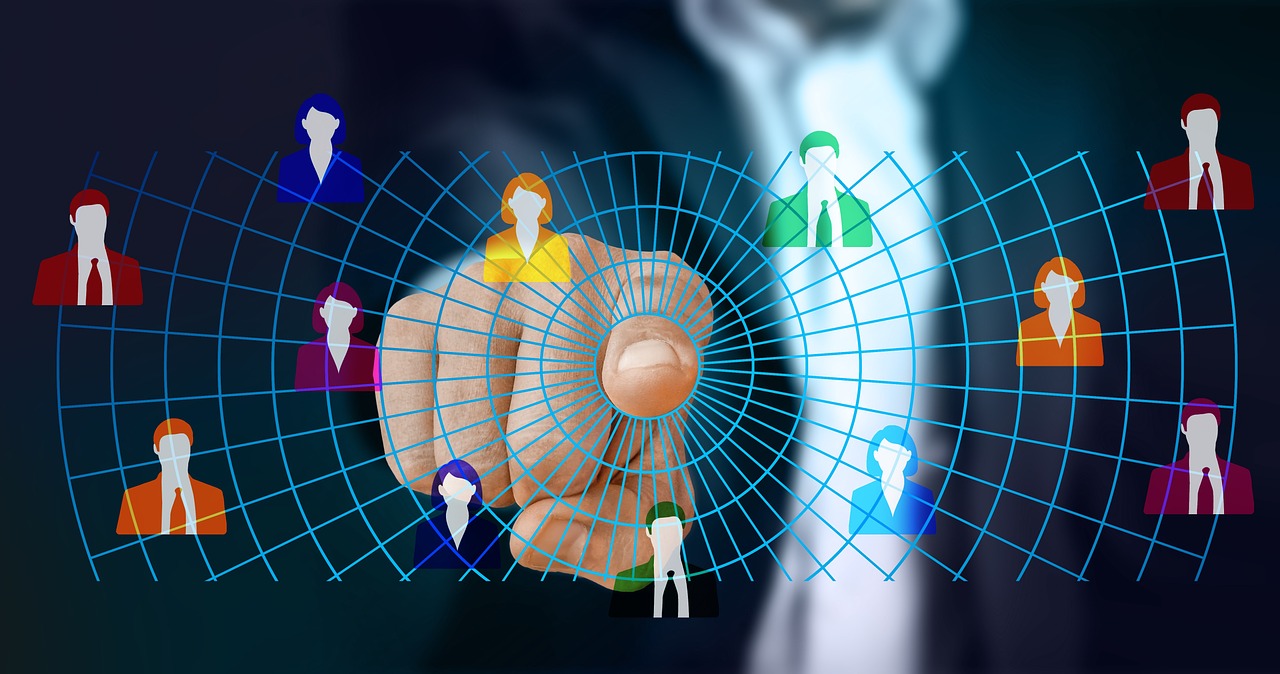The future is often painted with broad strokes of technological advancement, but perhaps no single technology is poised to reshape our world quite like Artificial Intelligence (AI). From self-driving cars to personalized medicine, AI is rapidly transitioning from science fiction to everyday reality. This blog post delves into the multifaceted AI future, exploring its potential impacts, challenges, and the transformative possibilities it holds for individuals, businesses, and society as a whole.
AI’s Impact Across Industries
Transforming Healthcare
AI is revolutionizing healthcare in numerous ways, enhancing diagnostics, treatment, and patient care.
- AI-powered Diagnostics: AI algorithms can analyze medical images (X-rays, CT scans, MRIs) with greater speed and accuracy than human radiologists, leading to earlier and more precise diagnoses. For example, Google’s DeepMind is developing AI systems capable of detecting over 50 eye diseases from retinal scans.
- Personalized Medicine: AI can analyze a patient’s genetic information, lifestyle, and medical history to create personalized treatment plans, optimizing drug dosages and minimizing side effects. Companies like Tempus are leveraging AI to personalize cancer treatment based on genomic sequencing.
- Drug Discovery: AI accelerates drug discovery by predicting the efficacy and safety of potential drug candidates, significantly reducing the time and cost associated with traditional drug development processes. Atomwise uses AI to identify potential drugs for diseases like Ebola and multiple sclerosis.
- Robotic Surgery: AI-guided robotic surgical systems enhance precision and minimize invasiveness, leading to faster recovery times and reduced complications. The da Vinci Surgical System is a prime example of this technology.
- Actionable Takeaway: Be proactive in researching and understanding how AI is being integrated into healthcare. This knowledge can help you make informed decisions about your own healthcare and advocate for better, more efficient treatments.
Reshaping the Future of Work
AI is poised to significantly alter the landscape of work, automating tasks and augmenting human capabilities.
- Automation of Repetitive Tasks: AI-powered robots and software can automate repetitive and mundane tasks, freeing up human workers to focus on more creative and strategic activities. This includes tasks like data entry, customer service, and manufacturing processes.
- Enhanced Productivity: AI tools can assist workers in various industries, enhancing their productivity and efficiency. For instance, AI-powered writing assistants can help create reports and marketing materials, while AI-driven project management tools can optimize workflows and resource allocation.
- New Job Creation: While some jobs may be automated, AI will also create new job opportunities in fields such as AI development, data science, and AI ethics. The demand for AI specialists is expected to grow exponentially in the coming years.
- Upskilling and Reskilling: To adapt to the changing job market, individuals will need to acquire new skills in areas such as AI, data analysis, and critical thinking. Companies and educational institutions will need to invest in upskilling and reskilling programs to prepare the workforce for the AI era.
- Actionable Takeaway: Identify skills that are likely to be in demand in the AI-driven future and invest in training and education to acquire those skills. Focus on areas where human creativity and critical thinking are essential, as these are less likely to be automated.
Transforming the Retail Experience
AI is enhancing the retail experience by personalizing recommendations, optimizing inventory management, and streamlining operations.
- Personalized Recommendations: AI algorithms analyze customer data to provide personalized product recommendations, increasing sales and improving customer satisfaction. Amazon and Netflix are prime examples of companies that use AI for personalized recommendations.
- Inventory Management: AI can predict demand and optimize inventory levels, reducing waste and ensuring that products are always in stock. Retailers like Walmart are using AI to improve their supply chain management.
- Chatbots and Virtual Assistants: AI-powered chatbots provide instant customer support, answering questions, resolving issues, and guiding customers through the purchasing process. Many retailers use chatbots on their websites and mobile apps to improve customer service.
- Autonomous Checkout Systems: AI-powered checkout systems enable customers to scan and pay for their items without the need for human cashiers. Amazon Go stores utilize this technology, offering a seamless and convenient shopping experience.
- Actionable Takeaway: As a consumer, embrace the personalized experiences offered by AI in retail but remain mindful of data privacy. As a retailer, explore AI-powered solutions to optimize your operations and enhance customer satisfaction.
Ethical Considerations and Challenges
Bias and Fairness
One of the major challenges in AI development is ensuring that AI systems are fair and unbiased.
- Data Bias: AI algorithms are trained on data, and if the data is biased, the AI system will also be biased. For example, if an AI system is trained on a dataset that predominantly features one demographic group, it may perform poorly or unfairly on other demographic groups.
- Algorithmic Transparency: Understanding how AI algorithms make decisions is crucial for ensuring fairness and accountability. However, many AI algorithms are complex and opaque, making it difficult to identify and address biases.
- Ethical Frameworks: Developing ethical frameworks and guidelines for AI development is essential to ensure that AI systems are used responsibly and do not perpetuate existing inequalities. Organizations like the AI Ethics Lab are working to promote ethical AI practices.
- Actionable Takeaway: Advocate for transparency in AI algorithms and support initiatives that promote fairness and bias detection in AI systems. Be aware of the potential for bias when interacting with AI-powered applications.
Privacy Concerns
The increasing use of AI raises significant privacy concerns.
- Data Collection and Usage: AI systems often require large amounts of data to function effectively, raising questions about how this data is collected, stored, and used. It’s crucial to have robust data privacy regulations in place to protect individuals’ privacy.
- Facial Recognition Technology: The widespread use of facial recognition technology raises concerns about mass surveillance and the potential for misuse. Regulations are needed to govern the use of facial recognition technology and protect individuals’ rights.
- Data Security: Protecting AI systems and the data they use from cyberattacks is essential to prevent data breaches and ensure the security of sensitive information.
- Actionable Takeaway: Stay informed about data privacy regulations and advocate for stronger protections for your personal data. Be mindful of the privacy implications when using AI-powered applications and services.
Job Displacement
While AI creates new job opportunities, it also has the potential to displace workers in certain industries.
- Automation of Jobs: AI-powered robots and software can automate many tasks currently performed by human workers, leading to job losses in areas such as manufacturing, transportation, and customer service.
- Economic Inequality: Job displacement caused by AI could exacerbate economic inequality, as those who lose their jobs may struggle to find new employment.
- Social Safety Nets: Governments and organizations need to develop social safety nets and retraining programs to support workers who are displaced by AI.
- Actionable Takeaway: Support policies that promote retraining and education for workers displaced by AI. Advocate for social safety nets and universal basic income to mitigate the economic impact of job displacement.
The Future of AI Development
Advancements in Machine Learning
Machine learning (ML) is the driving force behind many AI applications, and advancements in ML algorithms are crucial for realizing the full potential of AI.
- Deep Learning: Deep learning, a subset of ML, uses artificial neural networks with multiple layers to analyze data and make predictions. Deep learning has been instrumental in advances in areas such as image recognition, natural language processing, and speech recognition.
- Reinforcement Learning: Reinforcement learning involves training AI agents to make decisions in an environment by rewarding them for correct actions and penalizing them for incorrect actions. Reinforcement learning is used in areas such as robotics, game playing, and autonomous driving.
- Generative AI: Generative AI models can create new data, such as images, text, and music, that is similar to the data they were trained on. Generative AI has applications in areas such as art, design, and content creation.
- Actionable Takeaway: Keep abreast of the latest advancements in machine learning, as these advancements will drive innovation in AI applications across various industries.
The Rise of Edge Computing
Edge computing involves processing data closer to the source, reducing latency and improving performance.
- Decentralized Processing: Edge computing enables AI algorithms to run on devices at the edge of the network, such as smartphones, IoT devices, and autonomous vehicles.
- Real-time Decision Making: By processing data locally, edge computing allows AI systems to make real-time decisions without relying on cloud connectivity.
- Improved Privacy: Edge computing can enhance privacy by processing sensitive data locally, reducing the need to transmit data to the cloud.
- Actionable Takeaway: Understand the benefits of edge computing and its role in enabling real-time AI applications in areas such as autonomous driving, healthcare, and manufacturing.
Quantum Computing and AI
Quantum computing has the potential to revolutionize AI by providing the computational power needed to train complex AI models and solve problems that are currently intractable for classical computers.
- Enhanced Computational Power: Quantum computers can perform calculations much faster than classical computers, enabling the development of more powerful AI algorithms.
- New AI Algorithms: Quantum computing may enable the development of new AI algorithms that are impossible to implement on classical computers.
- Drug Discovery and Materials Science: Quantum computing could accelerate drug discovery and materials science by enabling the simulation of complex molecules and materials.
- Actionable Takeaway:* Monitor the progress in quantum computing and its potential impact on AI. Quantum computing could unlock new possibilities for AI in areas such as drug discovery, materials science, and financial modeling.
Conclusion
The AI future is brimming with potential, promising to transform industries, enhance human capabilities, and solve some of the world’s most pressing challenges. However, realizing this potential requires careful consideration of ethical implications, proactive mitigation of risks, and a commitment to ensuring that AI benefits all of humanity. By embracing continuous learning, advocating for responsible AI development, and preparing for the changing nature of work, we can navigate the AI revolution and shape a future where AI empowers individuals, businesses, and society as a whole.




